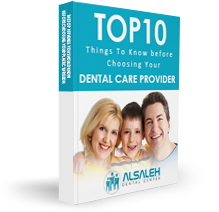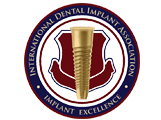Nobody looks forward to a root canal. In fact, the term itself has become synonymous with just about any painful or unpleasant experience. But the fact is, a root canal procedure generally relieves pain rather than causing it, and can allow patients to save a tooth, avoiding the need for an implant or bridge.
Anxiety About Root Canals
When your dentist lets you know you need a more extensive procedure like a root canal, it’s normal to be nervous. But with a little information, you can set aside your fears and go into the procedure expecting to experience minimal discomfort and come out with a healthier mouth.
Do I Need a Root Canal?
A root canal may be needed when the soft tissue (or pulp) and nerve tissue inside a tooth become infected. The procedure gets its name because the infected tissue is located in the tooth’s root canal, the natural cavity in the center of the tooth. Your dentist will need to go beyond the outside of the tooth to get to the “root” of the problem.
This internal infection can be caused by extensive decay, a broken or cracked tooth or a damaged crown. Left untreated, these kinds of infections can cause big problems. But despite the misconceptions, most root canals are relatively simple procedures and can be completed in one or two office visits. In most cases, you may experience mild discomfort, but you won’t be in pain during or after the procedure–most patients report about the same level of pain as with a typical filling.
What Does a Root Canal Involve?
Following an x-ray to check the status of the infection and the shape of the roots, your dentist will generally use a local anesthetic to numb the affected area. He’ll put in place a protective sheet or dental dam to keep the area clean and then make a small opening in the tooth using a series of specially designed files. He’ll clean out the infected pulp and root canal and then rinse with water or a disinfecting solution.
Following a thorough cleaning, your dentist may opt to fill the tooth during the same appointment. But in some cases, he’ll wait a few days or a week before completing the procedure, especially if antibiotics or other medications are prescribed to help fight the infection. Your dentist will fill the empty space in the root canal with a material called gutta percha, a plant-based natural latex commonly used in dental procedures. In many cases where a root canal is required, the decay or damage is fairly extensive, so the outer tooth will need to be replaced by a dental crown following the procedure.
After the root canal procedure, the tooth may be sensitive or slightly inflamed. Discomfort should be minimal and treatable with over the counter pain relievers like ibuprofen. Continue brushing and flossing your teeth and be sure to schedule any necessary follow-up appointments and maintain your regular check-up schedule. Root canals are a common procedure with a very high success rate, and with good oral care, many last a lifetime.
Symptoms
If you’re experiencing severe pain, frequent sensitivity to hot or cold, or swollen or painful gums, you may have a dental infection. Be sure to see your dentist right away if you have any of these symptoms–as with most dental issues, the sooner you get into the dentist’s chair, the less extensive treatment is generally required.
The big bad wolf that was the root canal has been tamed by modern technology and up-to-date dental practices. Don’t let anxiety about any dental procedure convince you to postpone making an appointment with your dentist. A visit or two can help you prevent further infection and abscesses that can cause longer-term damage. In many cases, a relatively simple root canal can make the difference between saving and losing a tooth. For most patients, it’s an easy call to make.











